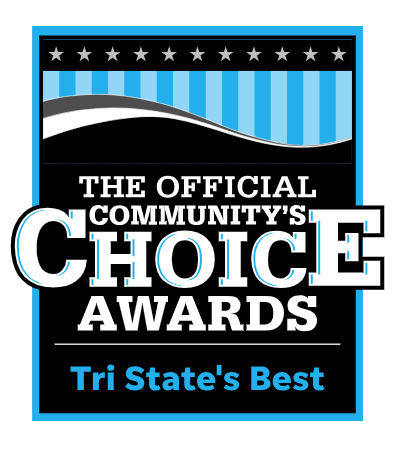What is Intuitive Eating…And Can It Help Me Lose Weight?

Every few years, it seems a new fad diet comes along that promises to be better than all the rest, or is even touted as the way people are “supposed to eat.” We’ve gone from fat-free to Atkins to Paleo, and now the latest craze is Keto (which calls for eating extravagant amounts of fat). The problem with all of these diets is that they are often highly restrictive, sometimes require the body to cope with extremes, and are hard for most people to follow long-term.
While our medical expertise lies in aesthetics, our patients often talk with us about weight as it relates to their appearance. Many of our Maryland plastic surgery patients also have a passion for food coupled with a desire to eat for health and vitality—so when we came across this article on intuitive eating in Refinery 29, we wanted to share it with you.
Intuitive eating neutralizes the eating experience, teaching you to trust your body and mind to eat for good health: food isn’t good or bad, it’s just food.
What is intuitive eating?
Intuitive eating is pretty much what it sounds like: you eat what feels good for your body, when you are hungry for it. It’s the anti-diet, if you will. Instead of eating what you think you “should,” or following a strict diet plan, you follow your natural cravings instead.
For example, if you’re really craving Pad Thai for lunch, you go for it, and enjoy it until you are full. If you order the kale salad instead because you think that’s more virtuous, you’ll not enjoy it as much, and you may end up eating more foods you don’t really want or need later in the day to try to fill that craving.
It goes the other way too. If you’re eating out with friends, and everyone is ordering double cheeseburgers and you really just want steamed broccoli, you shouldn’t feel compelled to go along with the crowd for fear of being judged as a “health nut.” Intuitive eating teaches you to be your own guide toward healthy nutrition, and listen to your body instead of externally imposed “shoulds” or “should nots.”
Can I lose weight with intuitive eating?
The main goal with intuitive eating is to improve your relationship with food and develop healthy eating habits that will become second nature to you. This may translate to weight loss for some people, particularly those who have used food to cope with stress or anxiety in the past.
By no longer classifying foods as “good” or “bad,” you’ll remove the mystique behind the so-called indulgences.
If the idea of honoring your cravings for pasta and ice cream whenever they hit sounds like a recipe for weight gain, you’re not alone. And the truth is, some people who have been eating too few calories for many years may gain a few pounds at first. Eventually, though, when eating reasonable amounts of food, our body should settle on a weight where it’s happy and healthy.
The trick is that you need be totally honest with yourself about what your body needs and in tune with your hunger signals—and stop eating when your stomach tells you it’s satisfied.
The other rule is to tune into how foods make your body and mind feel. You might find that something that is “ruled out” in the Paleo or Keto diet, such as oatmeal for breakfast, is exactly what your body wants.
Plus, by no longer classifying foods as “good” or “bad,” you’ll remove the mystique behind so-called indulgences. You might find you stop craving donuts when it’s not being “naughty” to buy yourself a Krispy Kreme.
Intuitive eating can break the yo-yo dieting cycle—and improve your health as a result.
Imposing diets on yourself often leads to a yo-yo of weight loss and gain because these diets are restrictive and temporary. This isn’t just frustrating—repeated weight fluctuation can wreak havoc on your metabolic processes, potentially increasing your risk for diabetes and heart disease.
People in the world’s “Blue Zones,” known for exceptional human health and longevity, eat intuitively and don’t think of food as an enemy. As author Patrick Mustain put it in Scientific American:
“One thing folks in the Blue Zones have going for them is that they’re not as obsessed as we are with what they eat and how they live. It just sort of happens. Maybe we should look into setting up our lives in a similar way.” – Patrick Mustain for Scientific American
By retraining your brain to view food as nourishment and not a matter of morality, you can free yourself from the stress and potential harm of trying to adhere to a diet that someone else told you is good. Instead, you can focus on what foods make your body and mind feel good and which ones do not, and learn to feed yourself well as a result.
Intuitive does not always equal easy
The concept of intuitive eating is simple, but not necessarily easy. In fact, it can be very challenging to retrain your brain to think differently about food. Here are a few of the challenges to consider.
Many processed foods are purposely engineered to have addictive qualities that can “turn off” signals between your body and your brain. Simple foods from nature have not been engineered to fool your body.
Some foods have been purposely engineered to be addictive. Recognize that processed foods (and dishes served at some chain restaurants) are more likely to have addictive qualities that can “turn off” signals to your brain that your body has had enough. On the other hand, simple foods right from nature have not been engineered to fool your body. As such, focusing on simpler foods can be a safer way to discover your own best way of intuitive eating.
Another challenge to intuitive eating is the barrage of dieting advice that we inevitably see in the media. If you want to try intuitive eating, consider taking a break from social media, TV, etc. that might obscure your own intuitions or make you feel guilty about your choices. Once you’ve found what feels right to you, you’ll likely be able to ignore advice that doesn’t fit.
Lastly, if you experience stress or anxiety about food, or have a medical condition such as an eating disorder, diabetes, or irritable bowel syndrome, consult with a qualified doctor and/or registered dietitian and follow their dietary recommendations.
In general, however, we can all benefit from keeping the main principles of intuitive eating in mind as we pursue optimal health—that we’re all different and food isn’t good or bad, it’s just food.
Leave a Comment


